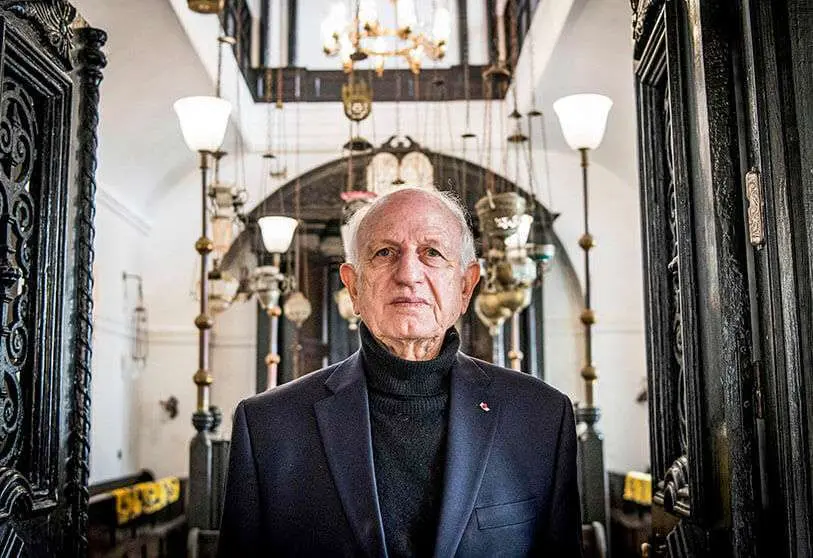Azoulay and the Atlantic Andalusias

The philosopher Julián Marías wrote that Spain was a reality that was paradoxically open inside and outside. Inside, because our national project was still invertebrate - a famous term of his master Ortega y Gasset - socially and territorially. And on the outside, because there were other “Spains” transplanted to the other side of the Atlantic, in Hispanic America, who continued to enrich the idea and practice of our country in spite of not always having been sufficiently appreciated and known in the Peninsula.
Like those other Spanish overseas, my first life experience as a resident in Morocco taught me that there are also other Andalusian regions beyond the limits of the current autonomous community. Other Andalusias ignored by the vast majority of those who live on the site of the Novísima Castilla that delimits the Guadiana estuary, the sparkling and warm waters of the Mediterranean in Almería, the silvery Sierra Morena and the columns of Hercules, which, as everyone knows, were in the Strait of Gibraltar (and today on the Andalusian shield).
The first time I became aware of the vitality of one of these extraterritorial Andalusian extensions, the Atlantic Andalusia, was when I saw in the Moroccan newspapers -in 2008- reports about the celebration of a music festival in Essaouira -I will avoid the French place name in spite of its widespread use in our language-, a beautiful town, Phoenician and Portuguese, Berber and Saharan, of Muslims, Christians and Jews, located on the Atlantic coast of Morocco. A meeting in the old Mogador around the Andalusian music - an adjective that in French is not distinguished from the 'Andalusian' genre -, the Flemish and the Hebrew musical heritage. A cultural event - Festival des Andalousies Atlantiques in its official name - which will celebrate this autumn, if the coronavirus allows it, its seventeenth edition. By the way, the Festival des Andalousies Atlantiques is not the only cultural landmark in Essaouira: every June another meeting is held in the coastal town, in this case dedicated to Gnaoua music - which sprang from mystical Muslim brotherhoods of sub-Saharan origin - as well as other musical events from around the world. I am a witness to the wonderful atmosphere that takes over the city these days.
By the way, as happens with all these pieces of Andalusia distributed throughout America, Africa and the Eastern Mediterranean, Andalusian music - the national pride in Morocco - is still, unfortunately, a great unknown in our country. Few people in the north of Tarifa know this musical heritage of Al-Andalus, a synthesis of the coexistence of different peoples, languages and creeds in medieval Spain, which in Morocco continues to be appreciated and respected by society. Even in Israel, thanks to the cultural heritage of its hundreds of thousands of citizens of Moroccan origin, Andalusian music enjoys growing popularity.
André Azoulay is a Jew and from Essaouira, advisor to King Mohammed VI of Morocco, co-president of the Three Cultures of the Mediterranean Foundation and winner of the Andalusian Medal of Solidarity and Concord in the last edition of the autonomous community's awards. The confidence and elegance of his gesture, as a Roman senator, and the depth of his turquoise-blue eyes caught my attention since I first saw his effigy in the Moroccan newspapers those years. As much as knowing about those Atlantic Andalusias that give name to the mentioned festival of his native city, whose creation he promoted. His calls for coexistence between faiths and cultures - the mixed-race atmosphere of his native Essaouira must have been decisive in his personality - made me read with attention the interviews and statements of his that were published in the local media. And it has been like that ever since.
On 28 February, the Andalusian Regional Government recognized not only the figure of Azoulay - surely unknown to the general public in our country - but also certain values: those of coexistence, miscegenation and harmony. Concord, by the way, in irremissible decline in use and practice. "Concord was possible", reads the optimistic epitaph of former president Adolfo Suárez at his tomb in the cathedral of Ávila (despite the fact that today Spain's political scene insists on denying it). With the awarding of the Medal of Andalusia to the royal advisor, the regional administration also urges respect for and knowledge of others. For example, to get closer to our distant neighbors in the south. For its part, Moroccan society also has in Azoulay the best model to inspire it to continue persevering in pluralism and respect for difference.
In these springtime blue days of sadness that we have to see from the other side of the window, we imagine a better country at the end of the pandemic. We dream of harmony, solidarity and moderation in our life as a society, as many urbanites dream of a walk, free, on the shores of our blue seas. Blue like the eyes of Azoulay, like the waters of the powerful Atlantic of Esauera, the same through which Julius Caesar entered the Gulf of Cadiz before going up the Guadalquivir and through which the Moors and Sephardim fled, which is none other than those of Andalusia and Spain on other shores.
